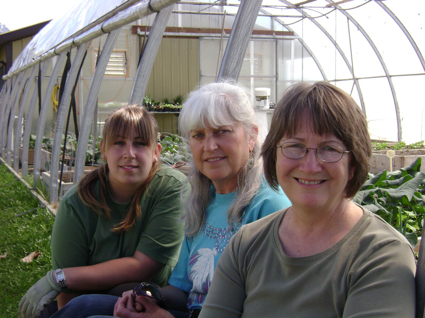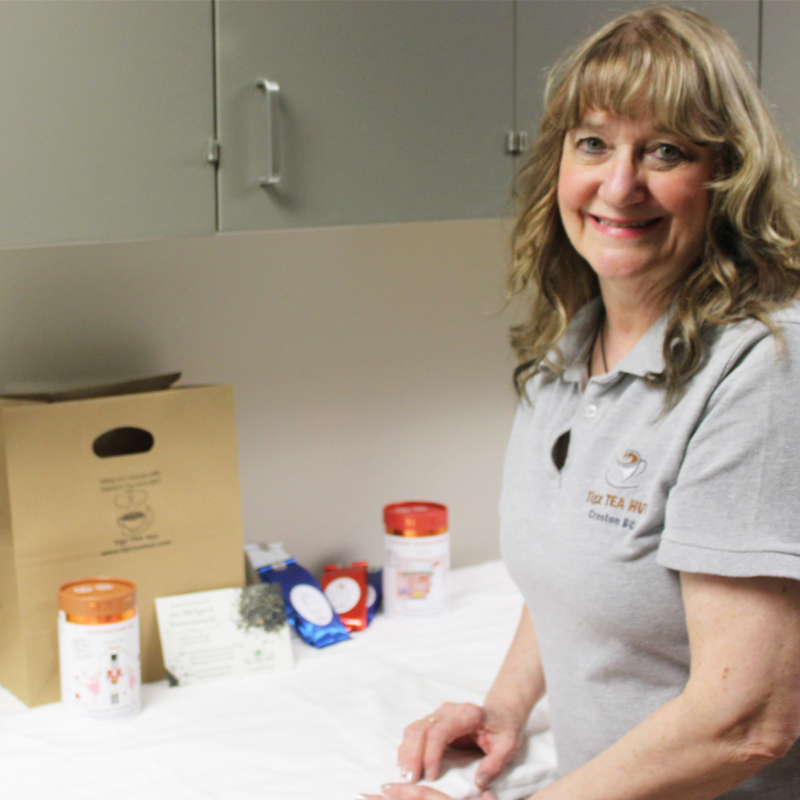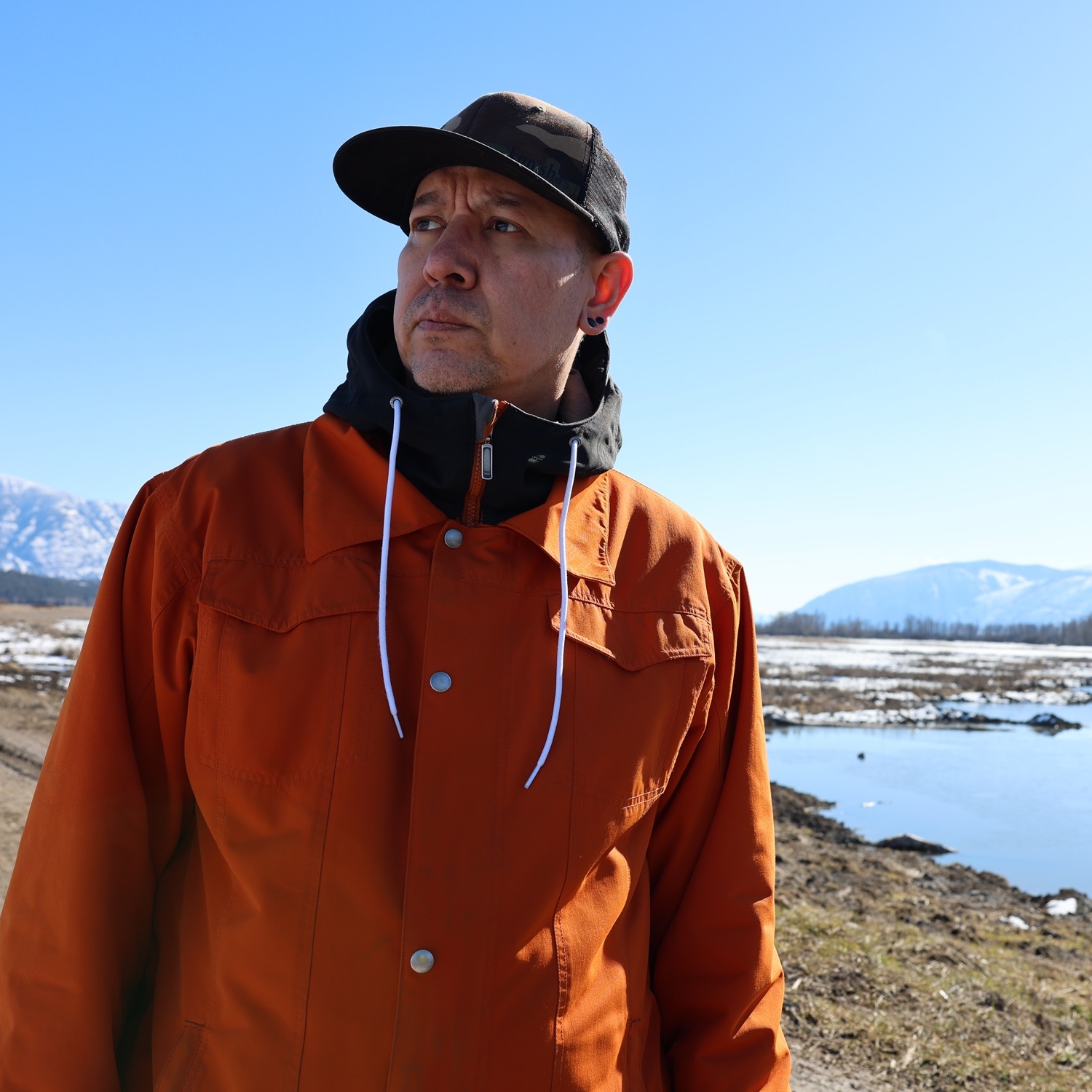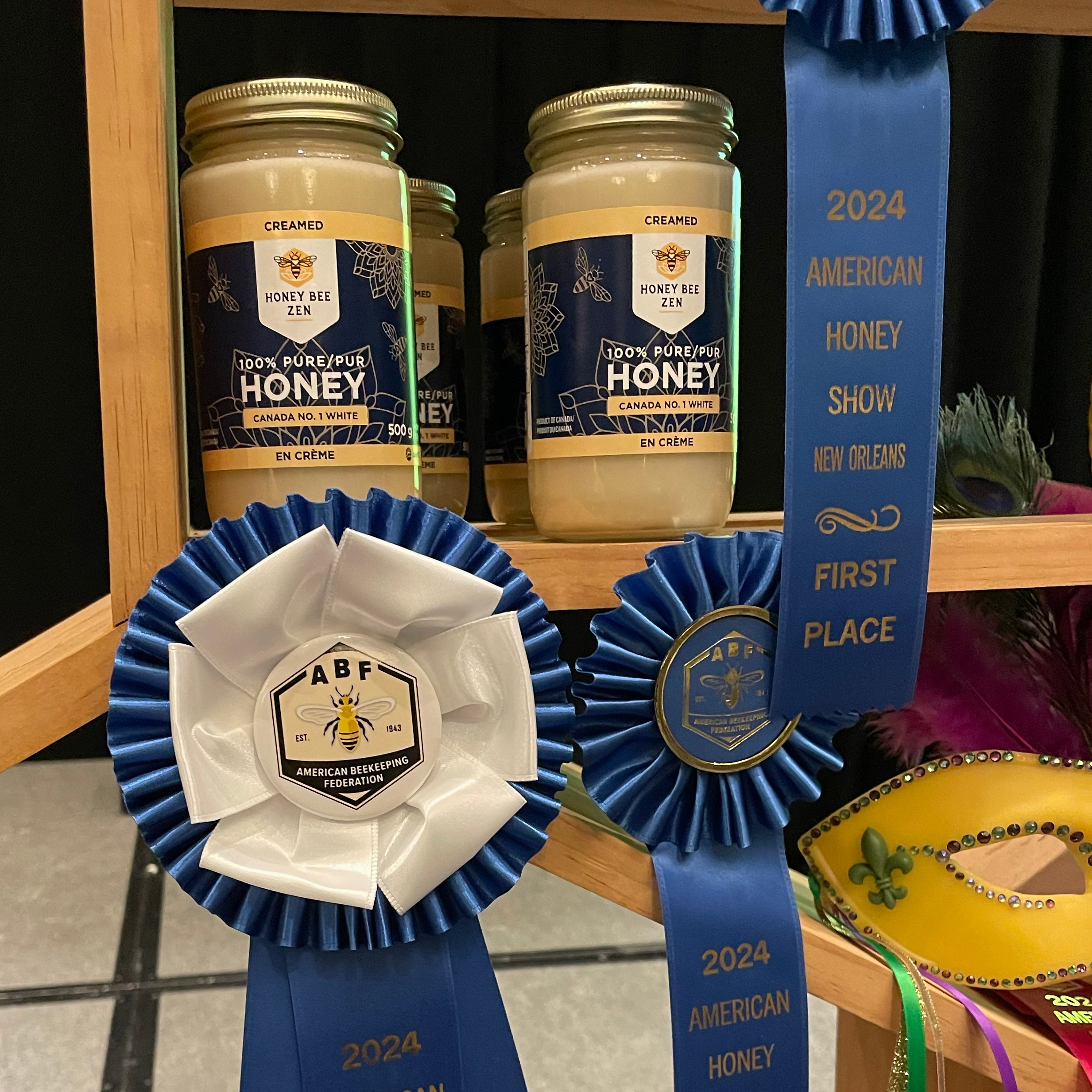Who says vegetables can’t grow in winter?
The Creston Winter Harvest Project successfully demonstrated the potential to extend the growing season of some vegetables

(L to R) Kristy Pelletier, Anita Sawyer and Karen Powis are thrilled with the success of the Creston Winter Harvest Project. — photo courtesy Anita Sawyer
Karen Powis, along with Anita Sawyer from the College of the Rockies in Creston, undertook the Creston Winter Harvest Project in 2009 to identify cold-tolerant vegetables and develop the best method for growing them in the Creston Valley. Ultimately, this could help local agricultural sustainability year round.
Powis, who has experience with extending growing seasons, took the lead with the project. Sawyer, who is the Winter Harvest assistant and manager of the Creston Community Greenhouse, joined Powis and youth assistant Kristy Pelletier on the Winter Harvest Project. The project was funded by Columbia Basin Trust and Investment Agriculture Foundation of British Columbia.
“We wanted to figure out a procedure to grow winter vegetables all through the winter, during the fall and the spring,” said Powis, "and to see which vegetables would overwinter."
"Overwintering is when you keep certain vegetables—usually root vegetables—in the ground and protect them from freezing over the winter," said Sawyer. "You can also overwinter greens by covering them with remay cloth and plastic, or building cold frames."
So which vegetables flourished?
“We grew plants that you usually grow in the spring: spinach, kale and corn salad, radishes, carrots, beets, several different lettuces, Chinese greens, Italian dandelions and endives,” Powis said. “We found that certain vegetables make it right through the winter, and other vegetables will produce a fabulous fall crop and then once December came they died. Kale, spinach and corn salad make it through the winter beautifully."
Powis commented on how well the spinach grew in the spring.
“This is the biggest spinach I have ever seen," she said, "and it proves to me that if you grow the vegetables in the season that they are intended for, they will perform their best.”
Sawyer said that, generally, best management practices included the importance of ventilation and when to water. She said a big issue was bugs.
“Bugs loved us,” she laughed, adding that the vegetables are not certified organic but are grown naturally.
Sawyer said what stood out for her was how it all worked.
“It really opened my eyes as to what can be done and how much you can grow for way longer," she said. "There is only a couple of months where the vegetables go dormant. Last year, by the end of February we were harvesting a lot of spinach and taking it to the food bank.”
Sawyer and Powis have considered what this could mean for the agricultural industry in Creston. They said they had quite a few commercial growers participate in the project, and these growers are now starting to grow winter crops and sell them at farmers markets as a direct result of this project. Gardeners from the Creston area also participated in the project.
“They all grew gardens in their own backyards with creative environments,” Sawyer said. “We met once a month for a round table discussion; they learnt from each other and found it was a helpful process.”
For full details of the vegetables' performance, best management practices and the project, visit the College of the Rockies website. For other details, go to the Community Garden blog.
Sawyer and Powis both recommend Eliot Coleman's book Four Season Harvest.





Comments